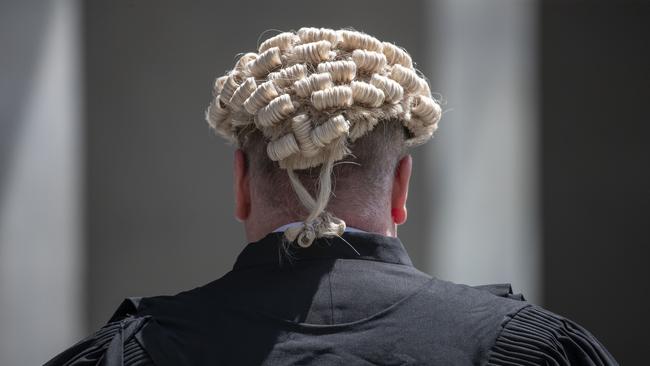Judiciary in danger of becoming politicised, AJOA report says
The judiciary is exposed to an ‘ever-present danger’ of becoming politicised, a report from Australia’s peak judicial body says, while calling for more Indigenous judicial appointments to make the justice system ‘more legitimate’.

The nation’s judiciary is exposed to an “ever-present danger” of becoming politicised considering the government both selects and funds the next generation of judges, a new report from Australia’s peak judicial body warns, adding it will always be difficult to “confidently exclude” the possibility of personal influence over appointments.
The report praises the bench for no longer only consisting of “white, middle-aged Christian males from privileged socio-economic backgrounds”, but calls for greater representation of Indigenous judges to make the legal system “more legitimate in the eyes of the public”.
It also pans Labor’s plan to slash judicial retirement funds as a matter of “profound” concern and a “potential pressure point for independence”.
The Australian Judicial Officers Association report, titled Judicial Independence in Australia and compiled by barrister and University of Western Australia lecturer Jessica Kerr, argues an independent judiciary is a “non-negotiable in any society committed to democratic governance and the rule of law”.
However, it warns the judiciary is under constant threat of becoming politicised, considering the structures surrounding appointments.
“In a country where the government of the day not only funds the operations of the judiciary but appoints the next generation of judges, the politicisation of those choices is an ‘ever-present danger’,” the report states.
However, it also points out the “overwhelming majority” of appointments are “uncontroversial and perceived as appropriately independent”.
“The existing judiciary and the legal profession, from which judges are drawn, are normally closely involved in these decisions, even if their involvement is not clearly explained by government to the public,” it states.
“However, one consequence of the current position is that it is difficult to confidently exclude the possibility of inappropriate political or personal influence on individual appointments.”
This can leave “well-qualified appointees vulnerable to criticism which may itself be improperly motivated”, the report adds.
Australia does not have a Judicial Council or “other body to represent the interests of judges or to regulate the judiciary” on the whole, the report states.
“This is an aspect of the inherited common law judicial tradition which has attracted increasing critique internationally,” it reads.
“It used to be assumed that the federal and state attorneys-general, who are responsible for most judicial appointments, would act as the champions or guardians of the judiciary in the political realm.”
The Australian judiciary has traditionally been comprised “largely of white, middle-aged, Christian males from privileged socio-economic backgrounds”, the report states, but that has changed in recent years.
It cites a “notable” period in which the majority of High Court judges were female under former chief justice Susan Kiefel, until she retired this year.
However, it states many Indigenous Australians “continue to lack trust and confidence in the judiciary” due to a lack of representation on the bench.
“Pursuing diversity in appointments is only one part of an accelerating effort across government to make these processes more inclusive and legitimate in the eyes of the public,” the report reads.
“The contribution which any individual judge can make to building this trust is constrained by their obligation to deliver impartial justice according to law, although there are an increasing number of specialist courts and processes which incorporate Indigenous knowledge and practices.”
The report slams a controversial broken promise by Treasury to change taxation of nest eggs above $3m.
Under proposed new laws, the tax on investment earnings on superannuation balances of more than $3m will be doubled to 30 per cent, in a move that Treasury estimates would initially affect 80,000 people.
It is understood the value of the judicial pension, which can total about $6m over 20 years, would be added to the judge’s super total when determining the balance above the threshold.
“As national demographics continue to shift, the sustainability of the judicial pension scheme has been called into question,” the report reads.
“Any reform to this scheme represents a potential pressure point for independence and may also have constitutional implications. A current federal taxation reform proposal has been identified as raising ‘profound concerns’ in both respects.”
The Australian Bar Association has said in the past that if Labor was able to impact judicial remuneration it could undermine the independence of the judiciary.
The report states that judicial salaries are “statutorily prescribed and published” in order to protect them from “politically motivated change”
“However, these rules are a relatively small part of the picture,” it reads.
“Much domestic judicial regulation takes place informally and without any independent oversight.”






To join the conversation, please log in. Don't have an account? Register
Join the conversation, you are commenting as Logout